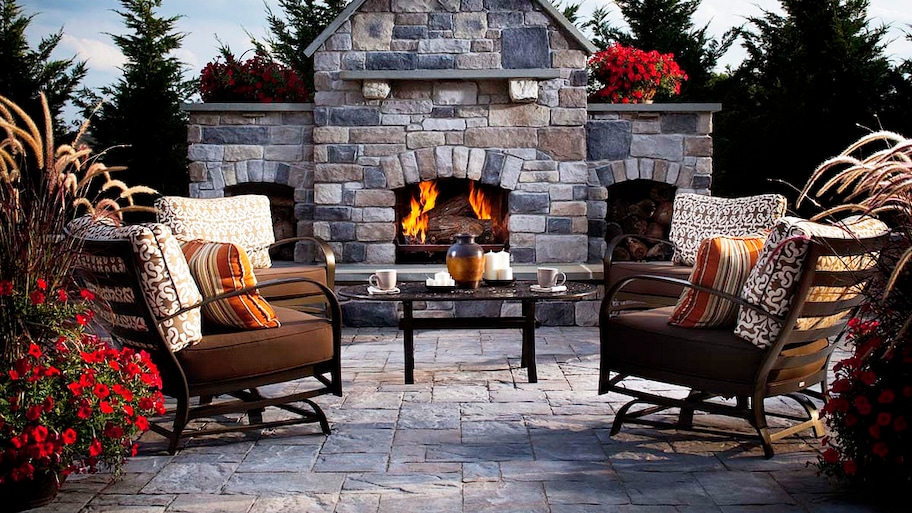Heed these tips to care for your hardscaping paver stones year-round.
Homeowners understand that pavers aren't simply attractive and stylish, they also offer increased protection to your property and landscaping as seasonal changes take effect. Let’s look at the “highs” and “lows” of maintaining some of today’s most common hardscapes through all four seasons.
Pavers resist sun and heat damage
As temperatures outside begin to rise during hot summer months, it’s important to consider how your hardscape surfaces might be affected by the increase in temperature and prolonged sun exposure. Unlike ordinary concrete and asphalt, which trap heat along the top layer of the surface as well as below the surface, pavers are designed to resist high temperatures.Because you can finish your paving stones with a breathable sealer for added protection against harmful ultraviolet rays, you won’t need to worry about cracks and other unsightly blemishes due to expansion. If cracks or other surface damage does appear over time, it’s easy to have them repaired — and you won’t need to foot the bill for a full replacement. All you’ll need to do is repair the affected section.
The above is important for a number of reasons, including the elimination of any tell-tale signs of repair work. Second, repairs made to pavers are typically quite inexpensive to make, oftentimes requiring as little as a few hours of work. Therefore, you can let go of any worries concerning long-term maintenance for pavers, making it easier for you to enjoy your new shaded areas for dining and entertaining.
Ordinary concrete repair is costly
Concrete, on the other hand, is not as forgiving as pavers. Repairs made to damaged areas can lead to unsightly “scars” that remain for the life of the installation. Also, because a full replacement of a concrete pad would be needed for most minor to major surface damage, the cost to fix damage is considerably more expensive for concrete than paving stones.

Seal pavers for added protection
To preserve the longevity of your pavers, regardless of the climate patterns where you live, it’s highly recommended that you finish your paver installation with a high-quality sealer. Doing so will help your pavers to resist expansion and minimize damage due to high temperatures, including dullness and discoloration.
Add a variety of professional-looking finishes for enhanced color and style, as well as to improve the overall quality of the stones.
Pavers perform well in winter
The biggest thing you’ll want to consider as temperatures drop in winter months is how snow, sleet and frost might affect your hardscapes.First things first, unlike ordinary concrete, pavers are designed to resist deterioration from freezing. A hard winter or drastic drop in temperature won’t damage your pavers installation; in fact, you won’t notice any residual affects or damage at all.
Freezing and thawing cycles won’t speed up the “aging” process of pavers either, so you won’t need to worry as a new winter season rolls around. Simply shovel away excess snow as needed, and enjoy the benefits of minimum maintenance and upkeep. You can even add an “earthy” color or texture pattern to create a “warm” outdoor living space all year.Pavers respond remarkably well to deicing, making the process easier, faster and cheaper than for other hardscapes, such as ordinary concrete or asphalt. Because pavers are designed to be a non-slip surface, you can be sure your paver driveway, walkway and other outdoor areas are accident-proof — even as Mother Nature takes her course.
Do you have pavers on your property? Tell us about your experience in the comments section below.

As of Dec. 3, 2015, this service provider was highly rated on Angi. Ratings are subject to change based on consumer feedback, so check Angi for the most up-to-date reviews. The views expressed by this author do not necessarily reflect those of Angi.




